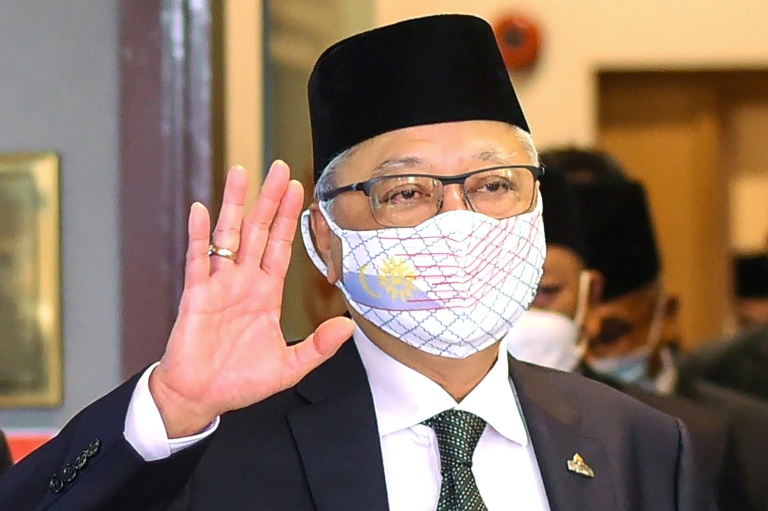An establishment stalwart was named Malaysia’s new prime minister Friday after the previous government collapsed, with a scandal-plagued party reclaiming the leadership that it lost at landmark elections in 2018.
Ismail Sabri Yaakob, who was deputy premier in the last administration, was appointed by the king as the country’s next leader after receiving backing from most MPs.
His predecessor Muhyiddin Yassin quit Monday following a turbulent 17 months in office after losing parliamentary support, and as anger grew over his government’s handling of a worsening coronavirus outbreak.
The incoming leader is from the United Malays National Organisation (UMNO), the lynchpin of a coalition that governed for six decades until losing power in 2018 amid the multi-billion-dollar 1MDB graft scandal.
UMNO had already regained a foothold in power as a partner in the last government, and Ismail Sabri’s victory means they have now reclaimed the country’s top job without elections.
There were immediate signs of public anger, with hundreds of thousands signing a petition against his appointment.
He will also have only a slim majority in parliament, fuelling concerns of further instability.
The constitutional monarch picked the leader based on who commands majority support in parliament, rather than opting for elections, fearing that polls might worsen the country’s already dire virus wave.
Following a meeting of the country’s royal families, the palace announced the king, Sultan Abdullah Sultan Ahmad Shah, had picked Ismail Sabri, and urged the country’s bickering politicians to unite.
“The king hopes that with the appointment of the new prime minister, political turbulence in the country will be resolved quickly,” the palace said in a statement.
He called on MPs to “cast aside their political agenda and instead unite to fight the pandemic to ensure the nation’s prosperity”, it said.
Ismail Sabri will be sworn in on Saturday.
He will also have to face a no-confidence vote when parliament convenes in September.
– ‘Compromise leader’ –
Long-time opposition leader Anwar Ibrahim, who has sought the job of prime minister for over two decades, lost out yet again.
Ismail Sabri becomes Malaysia’s third prime minister since the 2018 elections set off a period of political turmoil in the country of 32 million people.
A reformist alliance took power after those polls but collapsed amid infighting, paving the way for Muhyiddin to take power.
Ismail Sabri’s administration is essentially a rejigged version of the one that just collapsed, with Muhyiddin and his party backing him.
“He’s a somewhat compromise leader,” Oh Ei Sun, an analyst at the Singapore Institute of International Affairs, told AFP.
“He will have to rush out a series of refreshing, and hopefully effective, policies to tackle the pandemic and revive the economy if he is to win some trust from the public.”
Despite a months-long nationwide lockdown, Malaysia’s virus outbreak has accelerated dramatically, with officials logging over 20,000 cases and hundreds of deaths a day, and the central bank has slashed its economic growth forecast.
There were also concerns that with UMNO regaining the premiership, corruption cases against several of its lawmakers could be affected.
These include the case against ex-leader Najib Razak, who was convicted and sentenced to jail over the 1MDB fraud after losing power in 2018.
Najib, who remains an MP with considerable influence in UMNO, is still free pending an appeal.
Ismail Sabri has held several cabinet posts over the years, including agriculture and rural development minister.
A member of the country’s Muslim majority, he has stoked controversy on occasion with remarks criticised for fanning racial tensions.
About 60 percent of Malaysia’s population are Muslim and it is also home to substantial ethnic Chinese and Indian minorities.











